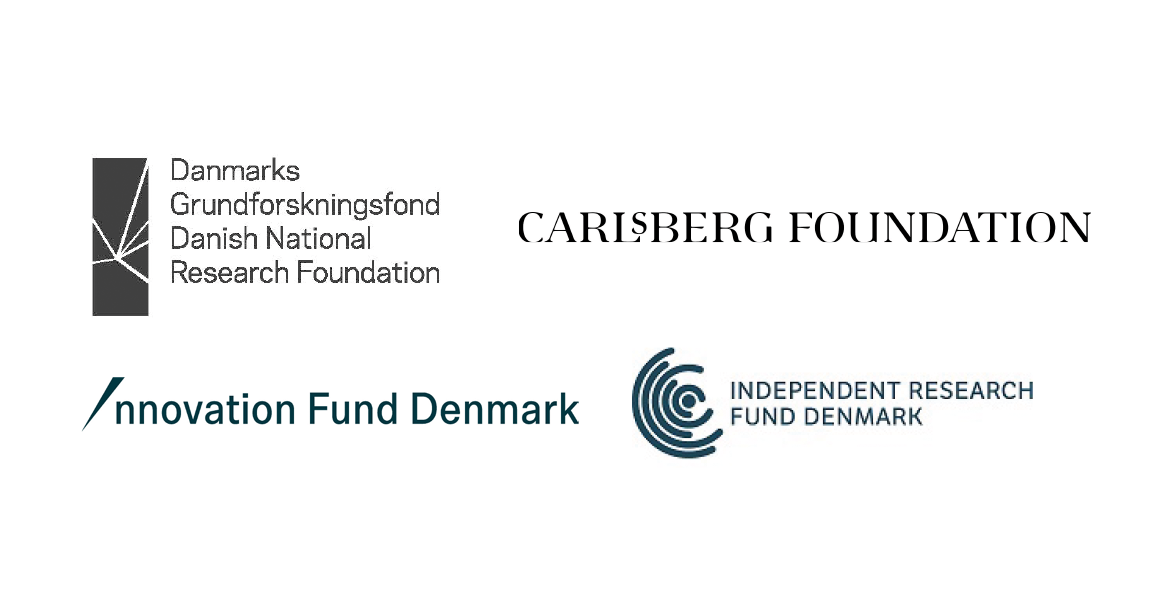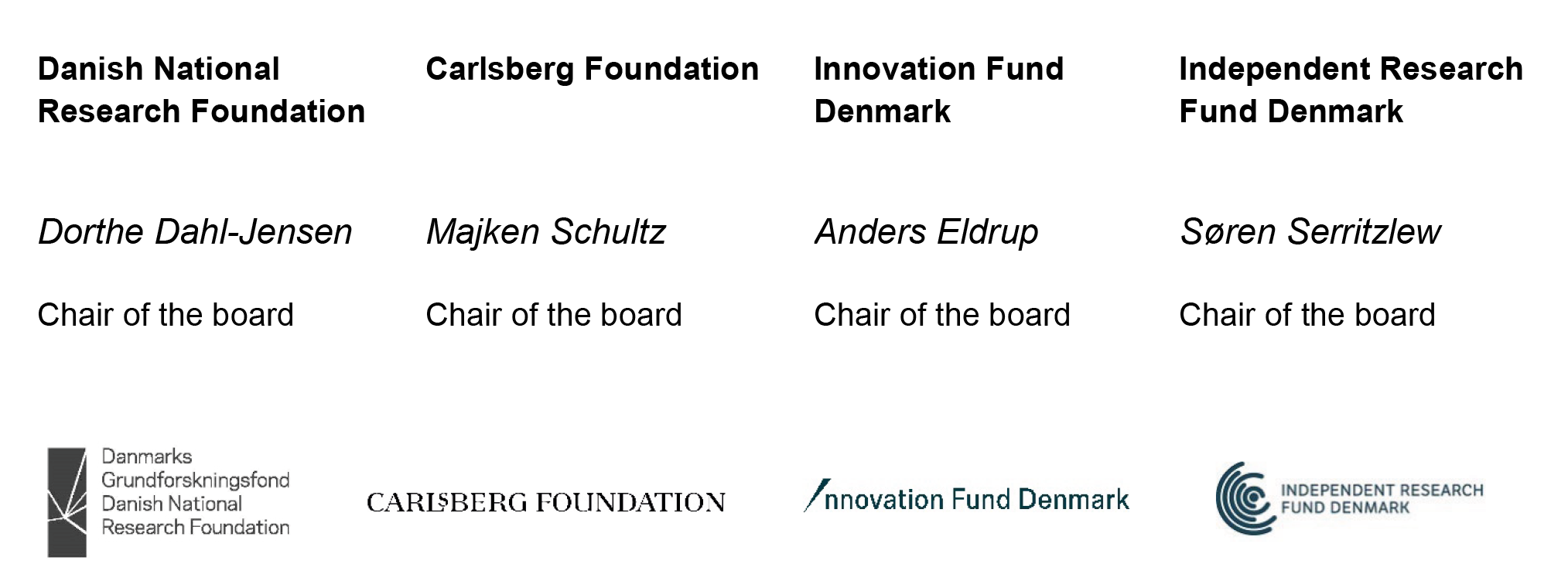Open letter
Open letter from Danish research funding organisations to the President of the European Commission
The EU is currently negotiating the next Framework Programme for Research and Innovation (FP10). Independent Research Fund Denmark, the Carlsberg Foundation, the Danish National Research Foundation, and Innovation Fund Denmark have issued an open letter in support of an ambitious, ring-fenced Framework Programme for Research and Innovation. Read the full open letter below.

To: Ursula von der Leyen, President of the European Commission
Open Letter
Danish research funding organisations support an ambitious, ring-fenced Framework Programme for Research and Innovation
Dear President von der Leyen,
In the context of preparations of the European Union’s next Multiannual Financial Framework and 10th Framework Programme for Research and Innovation, the co-signatories listed below, representing core public and private research funding organisations in Denmark, cordially convey the following concerns for your consideration:
We acknowledge the urgent need to enhance European resilience and remedy a growing research and innovation gap between Europe and its competitors. We strongly support an ambitiously funded 10th Framework Programme in line with recommendations forwarded in the Draghi and Heitor reports.
We are, however, deeply concerned that anchoring the 10th Framework Programme in a Competitiveness Fund under the auspices of Directorate-General Budget would involve a significant risk of conflating complementary, yet distinct, purposes that the upcoming programme should be tailored to meet. The 10th Framework Programme should succeed in supporting curiosity-driven and challenge-oriented research, promoting pre-competitive collaboration and close-to-market innovation, enabling technological development at the frontier and the cultural and social reproduction on which our societies depend. We are particularly concerned that the fundamental commitment to excellence, which has historically been an engine for ensuring scientific impact and connecting the European research community, will be compromised. The European Research Council has been a flagship priority of previous programmes but we are concerned that that it will become marginalized in the new programme. The consequences would be devastating for Europe’s ability to prepare for the challenges of tomorrow.
Based on experiences from the Danish research funding landscape, we contend that short-sightedness must be avoided, even if it may appear difficult in times of instability and distress. To give just one illustrative example of the need for a long-term perspective, we can highlight the trajectory of quantum science and technology in Denmark. As a current deep-tech powerhouse in this research and innovation area, Denmark is in position to harvest the commercial and societal benefits in health, communication, and green transition, and was recently chosen as site for NATO’s DIANA quantum centre, where development and commercialization of dual use technologies will be further accelerated. Importantly, this frontline position has been cultivated by diligent nurturing of talent, capacity building, and investment in basic research over decades. The research funding organisations we represent have each committed at crucial points in time to this collective endeavor. Continued coordination among public and private funding bodies and a clear understanding of division of responsibilities along the full value chain have been decisive for Danish success in this area.
As the largest and most ambitious research and innovation funding programme in the world, the European Framework Programme should in our view maintain distinct schemes that support researchers in diverse sets of efforts, from basic science to application, and should rely on the foresight and ingenuity of researchers to also ask and explore questions, for which we do not need answers urgently, but where knowledge and capabilities will prepare us for the future. A significant, ring-fenced budget for the 10th Framework Programme for Research and Innovation, in which bottom-up components such as the European Research Council are prominent, is critical in this regard.
We stress that while the contribution of science to European short- and long-term competitiveness is of vital importance, countless other interrelated outcomes should not be neglected. Europe needs to maintain its commitment to fundamental values on which independent and socially cohesive societies are built, including trust in science and freedom of research. The constitutive effects of the European research and innovation programmes are extensive, and hence fundamental principles of sound science and research integrity should continue to shape also the 10th generation of the programme.
Sincerely,

